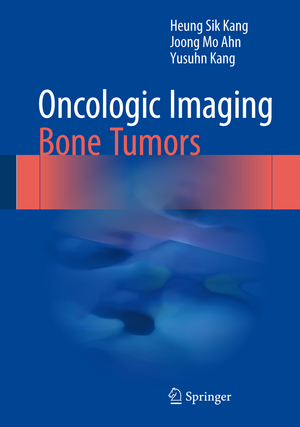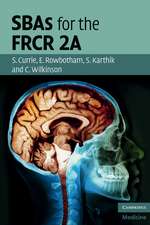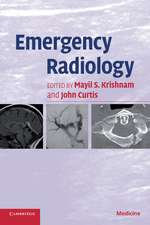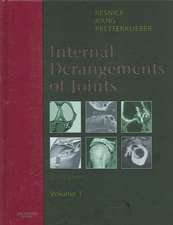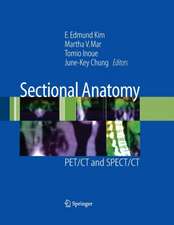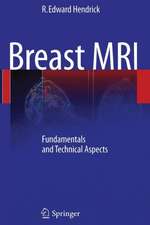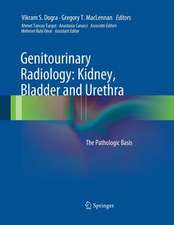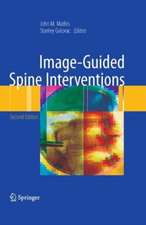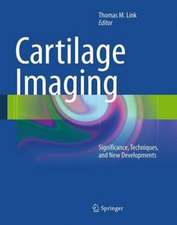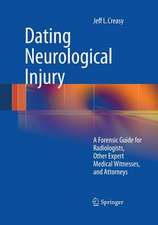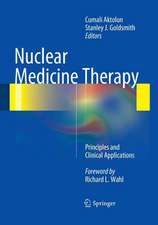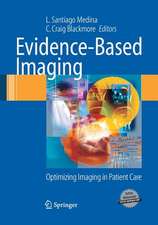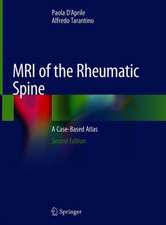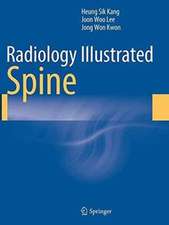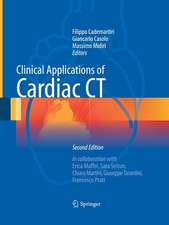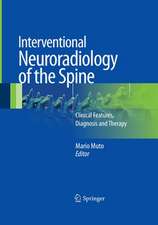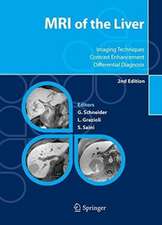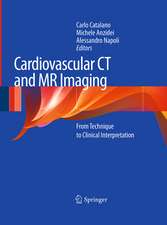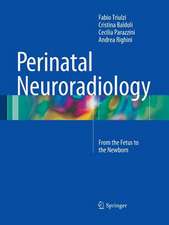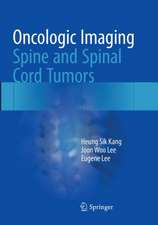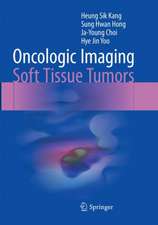Oncologic Imaging: Bone Tumors
Autor Heung Sik Kang, Joong Mo Ahn, Yusuhn Kangen Limba Engleză Hardback – 22 iun 2017
| Toate formatele și edițiile | Preț | Express |
|---|---|---|
| Paperback (1) | 759.98 lei 38-44 zile | |
| Springer Nature Singapore – 13 dec 2018 | 759.98 lei 38-44 zile | |
| Hardback (1) | 1181.68 lei 3-5 săpt. | |
| Springer Nature Singapore – 22 iun 2017 | 1181.68 lei 3-5 săpt. |
Preț: 1181.68 lei
Preț vechi: 1243.87 lei
-5% Nou
Puncte Express: 1773
Preț estimativ în valută:
226.14€ • 235.22$ • 186.69£
226.14€ • 235.22$ • 186.69£
Carte disponibilă
Livrare economică 24 martie-07 aprilie
Preluare comenzi: 021 569.72.76
Specificații
ISBN-13: 9789812877024
ISBN-10: 9812877029
Pagini: 600
Ilustrații: XI, 382 p. 189 illus., 27 illus. in color.
Dimensiuni: 178 x 254 mm
Greutate: 1.02 kg
Ediția:1st ed. 2017
Editura: Springer Nature Singapore
Colecția Springer
Locul publicării:Singapore, Singapore
ISBN-10: 9812877029
Pagini: 600
Ilustrații: XI, 382 p. 189 illus., 27 illus. in color.
Dimensiuni: 178 x 254 mm
Greutate: 1.02 kg
Ediția:1st ed. 2017
Editura: Springer Nature Singapore
Colecția Springer
Locul publicării:Singapore, Singapore
Public țintă
Professional/practitionerCuprins
Part 1. Basic concepts and diagnostic parameters.- 1. Demographics.- Age.- Gender.- 2. Lesion location.- In the skeleton: Specific bones.- Axial/ Appendicular.- Within a specific bone.- Epiphysis/ Diaphysis/ Metaphysis.- Medullary space/ Cortex/ Juxtacortical.- 3. Biological activity (pattern of destruction).- Geographic.- Sclerotic margin (IA).- Well-defined border without sclerotic rim(IB).- Ill-defined border (IC).- Moth-eaten (II).- Permeated (III).- 4. Matrix mineralization.- Osteoid.- Chondroid.- Fibrous.- 5. Periosteal and endosteal reaction.- Continuous.- Shell-type.- Solid-type.- Single-layer lamellar.- Multi-lamellated (onion-skinning).- Interrupted.- Perpendicular.- Spiculated (hair-on end).- Sunburst.- Codman’s triangle.- Endosteal scalloping.- 6. Size and number of the lesions.- Part 2. WHO classification of bone tumor and specific radiologic features.- 1. Osteogenic tumors.- Benign: Osteoma, Osteoid osteoma, Osteoblastoma.- Malignant: Osteosarcoma.- 2. Chondrogenic tumors.- Benign: Osteochondroma, chondromas, Chondromyxoid fibroma, Subungualexostosis and bizarre parostealosteochondromatous proliferation, Chondroblastoma.- Malignant: Chondrosarcoma.- 3. Fibrogenic and fibrohistiocytic tumors.- Desmoplastic fibroma of bone, Fibrosarcoma of bone.- Non-ossifying fibroma/Fibrous cortical defect.- Benign fibrous histiocytoma of bone.- 4. Osteoclastic giant cell-rich tumors.- Giant cell tumor of the small bones, Giant cell tumor of bone.- 5. Hematopoietic neoplasms and small round cell tumors.- Plasma cell myeloma/ Solitary plasmacytoma of bone, Primary lymphoma of bone, Ewing’s sarcoma,- 6. Vascular tumors.- Haemangioma, Angiosarcoma.- 7. Others (Tumor-like lesions, Soft tissue type tumors..).- Simple bone cyst, Aneurysmal bone cyst, Fibrous dysplasia, Osteofibrous dysplasia, Langerhans cell histiocytosis, Intraosseouslipoma, Liposclerosingmyxofibrous tumor, Adamantinoma.- 8. Tumor syndromes.- Enchondromatosis: Ollier disease and Maffucci syndrome,McCune-Albright syndrome, Multipleosteochondromas.- Part 3. Practical pearls in the diagnosis of bone tumors.- Radiographic findings.- Intramedullary sclerotic bone lesions.- Cortical sclerotic bone lesions.- Geographic osteolytic lesion, sclerotic border, no intralesional matrix.- Geographic, osteolytic lesion, no sclerotic border, no intralesional matrix.- Expansileosteolytic lesion with pseudotrabeculation (Soap-bubble appearance).- Aggressive osteolytic lesions - Moth-eaten / Permeativeosteolytic lesion.- Mixed lytic and sclerotic lesions.- Chondroid matrix.- Osteoid matrix.- Pedunculated or sessile bony excrescences.- Juxtacortical/ Periosteal lesions.- 2. MRI characteristics.- Intralesional features.- Fat containing lesions.- T2 hypointense tumor matrix.- Fluid-fluid levels.- Flow voids.- Ancillary findings.- Soft tissue extension.- Intralesional or peritumoral edema.- 3. “Look like anything” lesion.- Part 4. Drill and practice: image interpretation session.
Recenzii
“The layout is good and provides a useful overview of a comprehensive range of bone tumours with representative images and helpful relevant differential diagnoses for each lesion. … the book would also prove useful to solidify concepts and serve as a useful reference for more experienced readers.” (Bhavin Upadhyay and Asif Saifuddin, RAD Magazine, February, 2018)
“This book on imaging of bone tumors, both malignant and benign, is divided into three distinct sections that provide an overview of pathophysiology, discuss specific bone tumors, and troubleshoot for characterizing bone lesions. … This is a must‐have book for all radiology residency programs! It is also a useful resource in the reading room of any general radiologist.” (Tara M. Catanzano, Doody's Book Reviews, September, 2017)
Notă biografică
Heung Sik Kang, Department of Radiology, Seoul National University College of Medicine, Seoul National University Bundang Hospital, Seoul, Republic of Korea Joong Mo Ahn, Department of Radiology, Seoul National University College of Medicine, Seoul National University Bundang Hospital, Seoul, Republic of Korea Yusuhn Kang, Department of Radiology, Seoul National University College of Medicine, Seoul National University Bundang Hospital, Seoul, Republic of Korea
Textul de pe ultima copertă
This book aims to provide readers with a sound understanding of the spectrum of radiologic appearances of bone tumors, which reflect histopathology, and the pattern analysis of imaging findings.The first part of the book explains basic concepts and diagnostic parameters, including demographics, lesion location, biological activity, matrix mineralization, and endosteal and periosteal reactions. In the second part, typical and atypical radiologic features of bone tumors are reviewed in detail, with emphasis on the characteristic radiographic and MR imaging findings and reference to schematic drawings and pathologic or operative images when appropriate.The third part focuses on problem solving in cases encountered in real radiology practice and identifies categorical patterns on the basis of radiographic and MR variables and lesion location. Informative cases are illustrated and compared to enhance understanding of differential diagnosis using pattern analysis. The final part of the bookhelps readers to consolidate what they have learned and to hone their diagnostic reasoning skills by presenting about 30 typical bone tumor cases with questions, answers, and commentary.
Caracteristici
Explains the pattern analysis of imaging appearances of bone tumors Reviews typical and atypical radiologic features of bone tumors in detail Helps readers to hone their diagnostic reasoning skills Includes a wealth of informative illustrations
